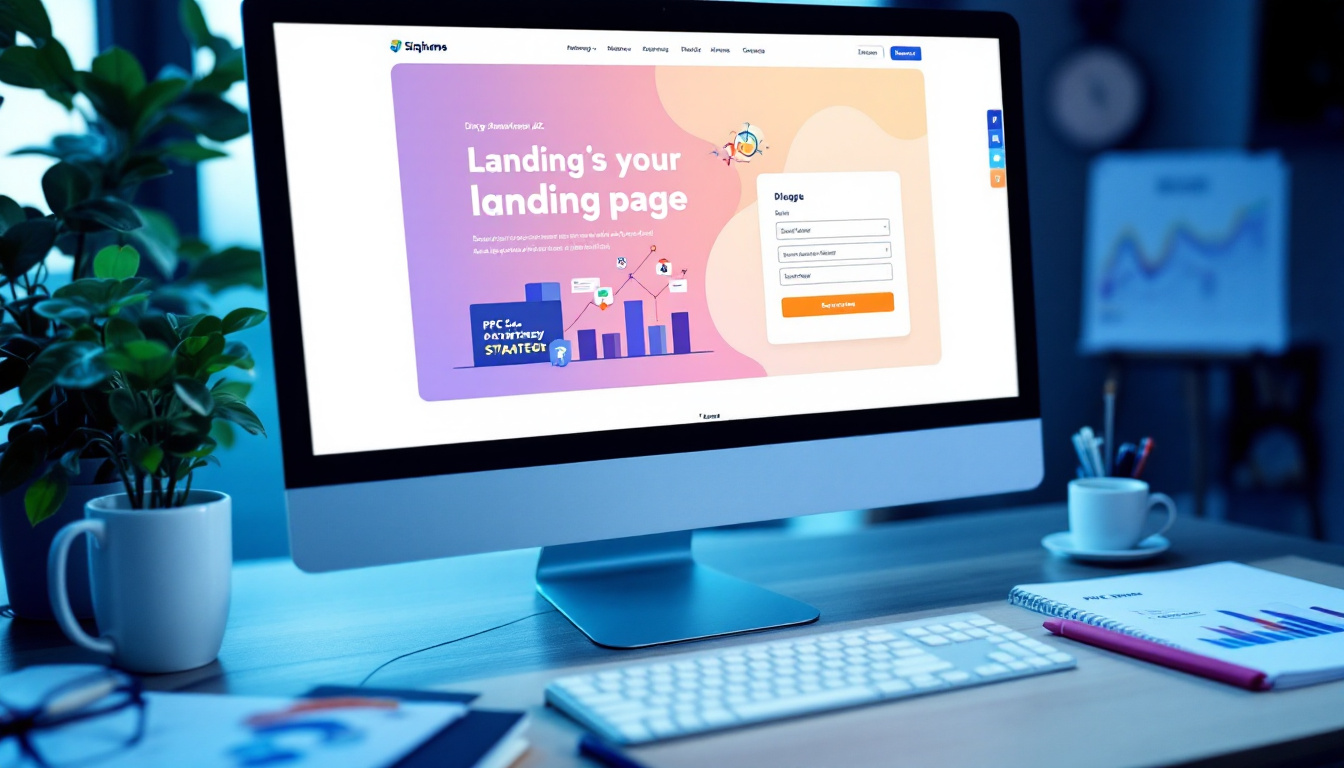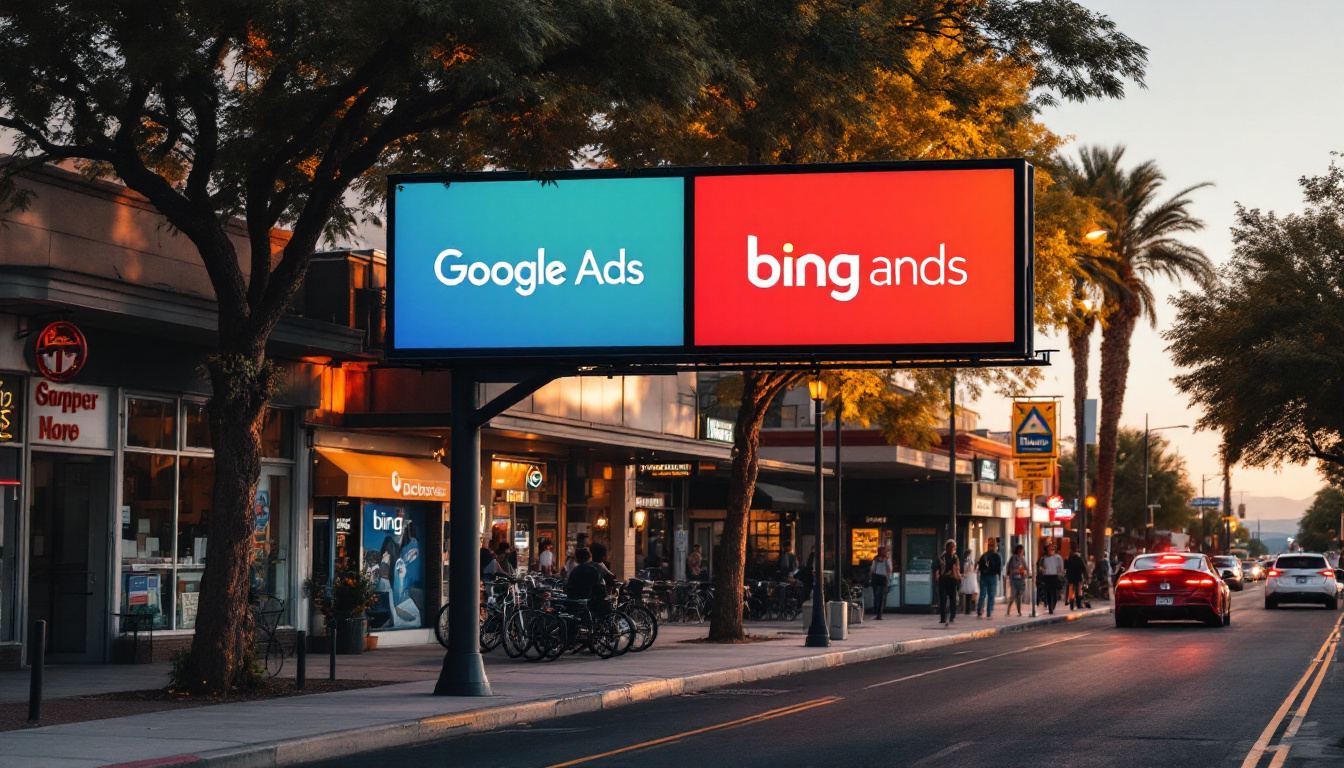10 Quick PPC Tips for Small Businesses in Mesa, AZ

Pay-per-click (PPC) advertising is a powerful marketing avenue for small businesses striving to capture their local market. For entrepreneurs in Mesa, AZ, navigating the world of PPC can seem daunting. However, with the right strategies, small businesses can maximize their visibility and drive quality traffic to their websites. Below are ten concise tips tailored to help small businesses excel in their PPC campaigns.
Tips for crafting compelling ad copy
When creating ad copy, the importance of clear, persuasive messaging cannot be overstated. Compelling ad copy captures the user's attention, communicates value, and prompts action. Here are several approaches to enhance your ad copy:
- Know Your Audience: Understand your target demographic’s needs and pain points. Tailor your message to speak directly to them.
- Highlight Offers: Promote discounts, free trials, or special promotions clearly in your ad copy to attract clicks.
- Use Actionable Language: Words like “Discover,” “Get,” and “Start” encourage users to engage.
Moreover, consider using emotional triggers in your copy. Engage the audience by addressing their desires or aspirations. This can lead to higher click-through rates (CTR) and ultimately better conversions. For instance, if you’re selling fitness products, tapping into the audience's desire for health and vitality can create a more compelling narrative. Phrases that evoke feelings of empowerment or transformation can resonate deeply, prompting users to take the next step.
Utilize Keywords Wisely
Incorporate relevant keywords without sounding robotic. Natural integration of these keywords in your ad copy makes the ads more relevant to search queries. Tools like Google's Keyword Planner can be helpful in identifying the right terms to include. Additionally, consider long-tail keywords that reflect specific user intents, as they often have less competition and can lead to higher-quality leads. For example, instead of just targeting "shoes," you might focus on "comfortable running shoes for flat feet," which speaks directly to a niche audience.
Test Different Variations
Always A/B test different versions of your ad copy. This helps you determine which headlines, descriptions, and calls to action resonate best with your audience. Continuous iteration can lead to significant improvements over time. Don’t just stop at testing text; consider experimenting with different formats, such as video ads or carousel ads, to see how they perform against traditional static ads. Analyzing the performance metrics from these tests can provide invaluable insights into user behavior and preferences, allowing you to refine your strategy further.
How to use geo-targeting effectively
Geo-targeting is a powerful feature that allows businesses to tailor their ads based on the geographic location of potential customers. For small businesses in Mesa, AZ, utilizing geo-targeting can make PPC campaigns significantly more effective. This strategy not only helps in reaching the right audience but also enhances the overall customer experience by providing relevant offers and information that resonate with local consumers.
- Local Focus: Center your campaigns on local keywords and phrases. Instead of “pizza delivery”, consider “Mesa pizza delivery” to attract nearby customers. This approach helps in connecting with the community and can lead to higher engagement rates as customers feel the brand understands their specific needs.
- Adjust Bids by Location: Allocate higher bids for areas exhibiting higher conversion rates and lower ones for less responsive regions. This strategic allocation ensures that your budget is spent where it matters most, maximizing the return on investment for your advertising efforts.
- Regional Ad Copy: Customize your ads to reflect local culture, landmarks, or community events. Incorporating local slang or references can create a sense of familiarity and trust, making your ads more appealing to the target audience.
By leveraging geo-targeting, you increase the likelihood of your ads reaching the most relevant audience, making your PPC efforts more efficient and cost-effective. Additionally, geo-targeting can help in building brand loyalty as customers appreciate businesses that cater to their local preferences and needs.
Analyze Location Performance
Regularly analyze performance metrics by location to optimize your campaigns. If certain areas are performing poorly, consider adjusting your strategy or reallocating your budget to better-performing regions. Utilizing analytics tools can provide insights into customer behavior, allowing you to refine your targeting and improve your overall campaign effectiveness. Understanding which demographics are engaging with your ads can also inform future marketing strategies.
Consider Mobile Users
Many users search for products or services on their mobile devices while on the go. Thus, ensuring your ads are optimized for mobile and targeting nearby users can help capture local traffic effectively. Mobile optimization is crucial, as users expect quick loading times and seamless navigation. Additionally, consider implementing location-based services such as click-to-call buttons or maps that direct customers to your physical location, enhancing the likelihood of immediate conversions.
Furthermore, integrating geo-targeting with social media platforms can amplify your reach. Many social media networks offer advanced targeting options that allow you to connect with users based on their current location. This can be particularly effective for time-sensitive promotions or events, ensuring that your message reaches the right audience at the right moment, ultimately driving foot traffic to your business.
Best practices for budget allocation
Effective budget allocation is essential for maximizing the ROI of PPC campaigns. Whether you have a modest budget or a more robust one, adhering to best practices can help manage spend and optimize for efficiency.

- Set Clear Objectives: Identify your goals (e.g., lead generation, brand awareness) to help guide your budgeting decisions.
- Monitor Daily Performance: Keep tabs on your campaigns daily to evaluate how spending aligns with results. Adjust as needed for optimal performance.
- Use Automated Bidding Strategies: Consider leveraging Google Ads' automated bidding features to optimize your bids based on the likelihood of conversion.
Moreover, maintaining flexibility within your budget allows you to adjust for seasonal trends or unforeseen opportunities, ensuring that you remain competitive in your market. This adaptability is particularly crucial during peak shopping seasons or promotional events, where consumer behavior can shift rapidly. By being prepared to reallocate funds to high-performing campaigns, you can capitalize on these moments and drive significant traffic and conversions.
Track Your Spending and Results
Make it a habit to meticulously track spending alongside performance metrics. Utilize analytics tools to dissect what’s working and what’s not, ensuring informed decisions for future campaigns. Regularly reviewing your data not only helps in identifying trends but also allows you to spot underperforming ads that may need further optimization or even discontinuation. This ongoing analysis can lead to a more refined approach to your advertising strategy, ultimately enhancing your overall budget efficiency.
Set a Monthly Budget
Having a defined monthly budget will help in planning out campaigns strategically, allowing for smooth cash flow management and reducing the risk of overspending. This structured approach also facilitates better forecasting for future campaigns, as you can analyze past performance to make educated predictions about what your budget should look like moving forward. Additionally, consider segmenting your budget into different categories, such as brand awareness and conversion-focused campaigns. This segmentation can provide clearer insights into which areas are yielding the best returns, enabling you to allocate resources more effectively.
Why testing is crucial in PPC campaigns
Testing should be an integral part of any PPC strategy. The digital landscape is constantly evolving, and without consistent testing, businesses risk stagnation. Here's why testing is essential:
- Identifying What Works: Testing different elements of your campaigns—such as landing pages, keywords, and ad copies—allows you to find out what resonates most with your audience.
- Improving Quality Scores: Continuous testing can lead to improved quality scores in platforms like Google Ads, resulting in lower costs per click and better ad placements.
- Staying Competitive: As competitors refine their strategies, ongoing testing ensures that your offerings remain relevant and engaging.
Ultimately, embracing an iterative approach to your PPC campaigns fosters continual growth and improvement.
Test Ad Scheduling
Experiment with different times of the day or days of the week for your ads to run. This can bring insights into when your audience is most responsive.
Evaluate Different Platforms
Don't limit yourself to just one advertising platform. Testing across Google Ads, Bing Ads, and social media can yield comprehensive understanding and performance insights.
How to use extensions to enhance ad visibility
Ad extensions are a powerful tool to increase the real estate your ad occupies on search results pages—leading to enhanced visibility and higher CTRs. Here are some essential types of ad extensions:

- Sitelink Extensions: These allow you to link to specific pages within your website, directing users to relevant content.
- Call Extensions: Include a phone number directly in your ads, making it easy for potential customers to reach out.
- Location Extensions: Provide your business address, facilitating local engagement.
Implementing these extensions can significantly improve the performance of your PPC campaigns, giving you an edge over competitors who are not leveraging these tools.
Monitor Your Extensions’ Performance
Regularly check how your ad extensions are performing and make necessary adjustments. If one type of extension is yielding better results, consider expanding its use in your campaigns.
Stay Up-to-date with New Features
Google and other advertising platforms frequently introduce new features and extensions. Stay informed and adapt your strategy accordingly to leverage the latest innovative tools available.
By following these ten quick PPC tips, small businesses in Mesa, AZ, can effectively enhance their online visibility, drive quality traffic, and ultimately increase revenue. Successful PPC campaigns require a combination of strategic planning, continuous testing, and local engagement, allowing small businesses to flourish in a competitive digital market.

As a Google Ads expert, I bring proven expertise in optimizing advertising campaigns to maximize ROI.
I specialize in sharing advanced strategies and targeted tips to refine Google Ads campaign management.
Committed to staying ahead of the latest trends and algorithms, I ensure that my clients receive cutting-edge solutions.
My passion for digital marketing and my ability to interpret data for strategic insights enable me to offer high-level consulting that aims to exceed expectations.


















